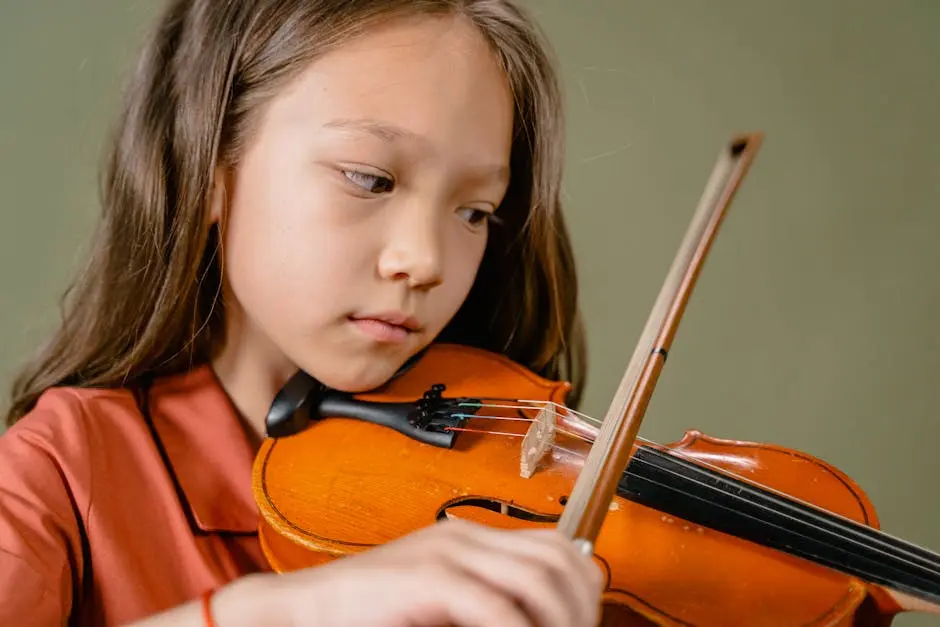Learning the violin can be a transformative experience for aspiring musicians. In this blog, we will explore why starting with the violin is not only enjoyable but also crucial for your overall musical development. Whether you’re a complete novice or have some experience, understanding its importance can elevate your musical journey.
Step 1: Understanding the Basics of Violin
Familiarize yourself with the parts of the violin, how to hold it, and the basics of bowing. Having a strong foundation in these concepts is crucial for effective learning.
Understanding how the violin works is like building a house. The structure matters; without the right parts and knowledge, everything may crumble. Simple steps in learning the names and functions of various components—the body, neck, strings, and even the bow—set the stage for successful progress. Engaging with these basics creates a sense of connection with the instrument.
Moreover, establishing how to hold the violin properly not only feels comfortable but also enhances your ability to produce sound. This understanding can often be overlooked, but it's paramount. A few moments spent adjusting your grip can lead to years of beautiful melodies.
Step 2: Developing Proper Technique
Learn about finger placement, posture, and bowing techniques. Proper technique not only prevents injuries but also enhances sound quality and playability.
To play the violin well, technique is crucial. Think of it as a special recipe; each ingredient must be perfect for the dish to sound right. As you practice, focus on how your fingers move and their placement on the strings. This keen attention pays off substantially in developing that rich sound violinists crave.
Additionally, your posture plays a critical role in sound output. A comfortable yet engaged stance eliminates strain and promotes longevity in your playing experience. Incorporate regular checks on your posture and arm positions as you practice; they can make a world of difference in the quality of your music.
Step 3: Exploring Musical Concepts
Dive into music theory, reading sheet music, and understanding rhythm. These concepts are essential for all musicians and will enrich your learning experience.
Music theory may seem daunting at first, but it serves as a roadmap for your journey. Understanding how music is structured creates a framework for creativity. As beginners explore scales, intervals, and chords, they unlock new ways to express emotions through their instrument.
Reading sheet music is like decoding a secret language. It opens up a vast repertoire of works, from Bach to contemporary pieces. Moreover, grasping rhythmic patterns transforms how you interact with music, allowing you to play harmoniously with others—a vital skill in musical growth.
Step 4: Building Discipline and Practice Habits
Establish a consistent practice routine. Discipline is key in mastering any instrument, and regular practice will yield significant improvements over time.
Creating a practice schedule might feel like a chore initially, but it's an absolute game changer. Just like training for a marathon, consistent daily practices allow muscles to adapt and improve. Start with short sessions to keep it manageable and gradually increase the time as skill level rises.
Furthermore, it's essential to set clear, achievable goals for each practice. Whether it’s perfecting a particular song or mastering a technique, defined targets create a sense of accomplishment and motivation. Celebrate those small victories—they're the stepping stones to bigger achievements!
Step 5: Applying Learning Through Performance
Engage in group lessons, recitals, or community performances. Sharing your music with others boosts confidence and enhances your overall musical experience.
Performances can seem intimidating! Yet, they are vital for growth. They're a chance to put all those learned skills to the test in front of an audience. Each performance acts as an opportunity to receive feedback and connect with fellow musicians, enriching your understanding and enjoyment of music.
Moreover, participating in recitals or group lessons cultivates a sense of community among learners. You’re not just practicing alone; you're part of a larger musical tapestry. Every note you play contributes to this harmony, fostering relationships that can last a lifetime.
Key Takeaways
In summary, learning the violin as a beginner paves the way for musical growth, fosters discipline, and enhances cognitive abilities. It provides a solid foundation for understanding music theory, improving listening skills, and developing creativity. So pick up that violin and let your musical adventure begin!
To start you musical journey today you can sign up for a Free Trail Lesson today!
https://mattburkmusicstudio.opus1.io/w/trial


